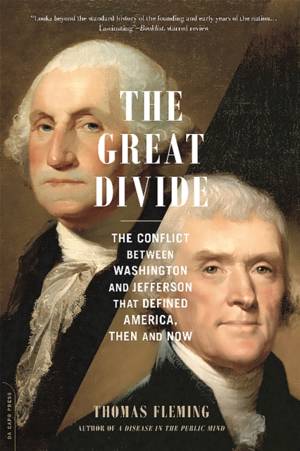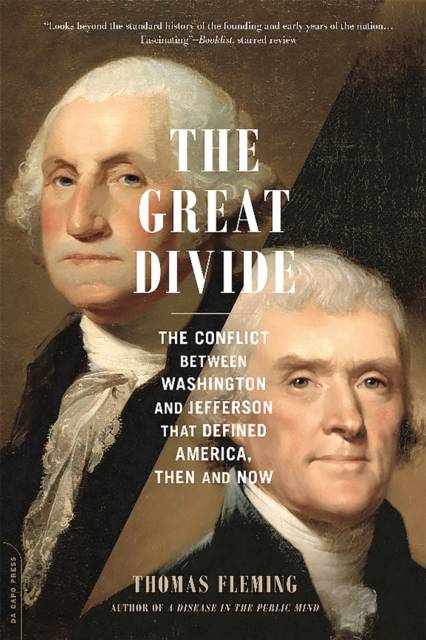
- Afhalen na 1 uur in een winkel met voorraad
- Gratis thuislevering in België vanaf € 30
- Ruim aanbod met 7 miljoen producten
- Afhalen na 1 uur in een winkel met voorraad
- Gratis thuislevering in België vanaf € 30
- Ruim aanbod met 7 miljoen producten
Zoeken
The Great Divide
The Conflict Between Washington and Jefferson That Defined America, Then and Now
Thomas Fleming
Paperback | Engels
€ 22,45
+ 44 punten
Omschrijving
In the months after her husband's death, Martha Washington told several friends that the two worst days of her life were the day George died -- and the day Thomas Jefferson came to Mount Vernon to offer his condolences. What could elicit such a strong reaction from the nation's original first lady? Though history tends to cast the early years of America in a glow of camaraderie, there were, in fact, many conflicts among the Founding Fathers -- none more important than the one between George Washington and Thomas Jefferson. The chief disagreement between these former friends centered on the highest, most original public office created by the Constitutional Convention -- the presidency. They also argued violently about the nation's foreign policy, the role of merchants and farmers in a republic, and the durability of the union itself. At the root of all these disagreements were two sharply different visions for the nation's future. Acclaimed historian Thomas Fleming examines how the differing temperaments and leadership styles of Washington and Jefferson shaped two opposing views of the presidency -- and the nation. The clash between these two gifted men, both of whom cared deeply about the United States of America, profoundly influenced the next two centuries of America's history and resonates in the present day.
Specificaties
Betrokkenen
- Auteur(s):
- Uitgeverij:
Inhoud
- Aantal bladzijden:
- 448
- Taal:
- Engels
Eigenschappen
- Productcode (EAN):
- 9780306824517
- Verschijningsdatum:
- 8/03/2016
- Uitvoering:
- Paperback
- Formaat:
- Trade paperback (VS)
- Afmetingen:
- 150 mm x 226 mm
- Gewicht:
- 498 g

Alleen bij Standaard Boekhandel
+ 44 punten op je klantenkaart van Standaard Boekhandel
Beoordelingen
We publiceren alleen reviews die voldoen aan de voorwaarden voor reviews. Bekijk onze voorwaarden voor reviews.











